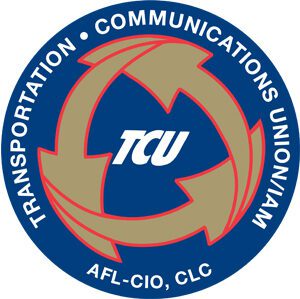On August 28, 2020, the U.S. Court of Appeals for the District of Columbia Circuit vacated the Federal Railroad Administration’s (FRA’s) approval of the Kansas City Southern Railway Company’s (KCSR’s) plan to use Mexican engineers to operate trains within the U.S.
As background, KCSR recently developed a revised engineer certification program for engineers working for its Mexican affiliate, the Kansas City Southern de Mexico, to operate railroad engines between the Mexican border and Laredo, Texas. Without this new program, engineers with KCSR would take over operation of the trains from the Mexican engineers for the 9.2-mile trip from the Mexican border to Laredo. The new regime would allow Mexican engineers to work all the way to Laredo for trips that originated in Mexico.
Situations such as these are usually addressed through the notice and comment process where railroads petition the FRA for waiver from Federal regulations in lieu of an alternative plan proposed by the railroad. The process involves publication of the railroad’s petition in the Federal Register and an opportunity for the public to comment on the proposal. After the public has a chance to comment, the FRA will then issue a formal decision on the matter.
However, this process was not followed in this instance. Instead, KCSR proposed the plan to FRA, which in turn, did not issue any formal decision approving the plan. KCSR then went ahead and implemented the plan given that FRA did not object to it.
After learning of KCSR’s approved plan, both the Brotherhood of Locomotive Engineers and Trainmen (BLE-T) and the Transportation Division of the International Association of Sheet Metal, Air, Rail and Transportation Workers (SMART-TD) filed suit in the Circuit Court to stop KCSR’s new plan alleging that FRA’s inaction was akin to its formal approval of the plan. FRA argued that the unions could not bring the action because the agency never issued a formal decision on the matter.
The Circuit Court agreed with BLE-T and SMART-TD and held that the FRA’s passive approval of KCSR’s revised engineer certification program was a final agency action, even though there was no documentation of the approval. Moreover, the appellate court also held that the unions’ challenge was timely because they acted within 60 days of learning of the program. In addition, the Circuit Court also concluded that the FRA offered no justification for the plan’s approval, specifically noting that:
what we confront in this case is a total explanatory void. There is no reason—not one word—in the administrative record for the [FRA’s] material and consequential decision making on important matters of railroad safety. Not even [KCSR’s] certification program itself, as submitted to the agency, provides an explanation for the relevant determinations that the [FRA] presumably reached.
Based on the above conclusions, the Circuit Court then vacated the FRA’s decision and remanded the matter back to the FRA to either “offer a fuller explanation of the agency’s reasoning at the time of the agency action,” or to “deal with the problem afresh.”
“This is a significant win for rail labor,” says Brotherhood Railway Carmen General President Richard A. Johnson. “Had the Circuit Court ruled against the unions in this instance, American train crews represented by BLE-T and SMART-TD would have been pushed out of their jobs by Mexican train crews who are not certified to operate trains in the U.S., undoubtedly encouraging other American railroads to seek similar regulatory relief.”
Click here to read the Circuit Court’s decision.

